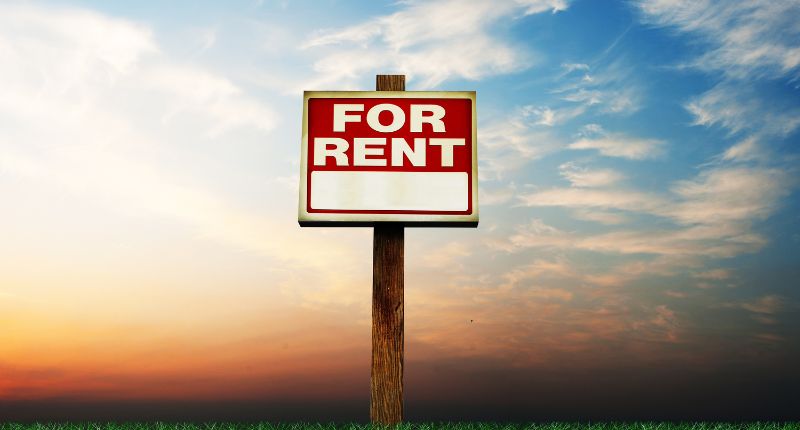
- Inflation peak may be a signal that rent growth is easing.
- Rent value growth and interest rate movements tend to be similar.
- 2024 predicted to be a better year for renters.
Soaring rents could soon be a thing of the past, with the worst of inflation having passed and the recent slew of rate hikes is predicted to be drawing to a close.
This change is welcome news for renters, as rent value growth is generally associated with cash rate movements. Indeed, the cash rate is predicted to peak sometime this year, with most major banks expecting cuts to the cash rate in 2024. While the annual rent growth remains elevated, it has dropped since its December 2022 peak.
Are rents and interest rates linked?
A recent CoreLogic Property Pulse noted that “growth in rent values usually tracks roughly with movements in the cash rate.”
This could be good news, CoreLogic’s Eliza Owen said, with inflation now past its peak and the interest rates hikes expected to end soon.
Growth in Rent Value Index (national, dwellings) versus cash rate

Several explanations exist for the relationship between rent value growth and interest rates, said Owen.
Firstly, rents are used to measure inflation. An increase in rents may also lead to a rise in inflation, which will cue the Reserve Bank of Australia (RBA) to lift interest rates in response.
Additionally, interest rates may affect rent. For example, higher interest rates can make investing in property less appealing, lowering the release of new rental stock into the market and pushing rents upwards.
New regulations targeting investment can also influence the market, said Owen. Observing the above chart, the jump in rents over the year to September 2017 coincides with short-term restrictions on investment lending introduced by the Australian Prudential Regulation Authority (APRA).
Likewise, 2019’s rental growth was caused by a shortfall in rental properties because the housing market was going through a dip, with investors losing interest.
Did investors increase rents to cope with higher mortgage repayments?
While some investors may have raised rents to cope with their inflated mortgage repayments, it is unlikely that rents were increased in proportion to the interest cost rises, said Owen.
According to Australian Tax Office (ATO) data from the 2020-2021 financial year, 47.1% of Australian property investors were negatively geared — just under half of Australia’s investors had rents that could not cover interest payments even before interest rates began to climb.
The more likely explanation for Australia’s high rents, said Owen, is that investors with little to no mortgage obligations capitalised on the tight rental market to raise rents in their investment properties.
Rents are estimated to have increased $225 per month over the year to June, according to CoreLogic, however, the mortgage costs of a new investment loan are estimated to be a substantially higher $948 per month on the median Australian dwelling value.
Regardless of mortgage repayment fluctuations, rents only spike when the rental market is overheated, where tenants have little bargaining power as demand for rental properties outpaces supply.
Total monthly rent listings versus cash rate

Further bolstering the argument is that the rental market started tightening in mid-2020, two years earlier than when the cash rate started to rise. Instead, the fall in rental accommodation was caused by investors losing confidence in the market, increasing income growth, and declining share housing.
Though higher interest rates have indeed eased investment activity from last year till early this year, they are not the only reason behind the increasing rents.
The year of renters
Rental growth may ease up in 2024 for several reasons:
- Tenants moving into share-houses to share the exorbitant cost of renting;
- Construction costs are stabilising, and the backhaul of residential dwelling projects due for completion may mark the exit of many renters;
- More supply is expected through government social housing and built-to-rent projects;
- Investor confidence is increasing, with activity starting to rise in 2023. If interest rates continue to fall and the housing market remains robust, this trend is set to continue into 2024.
Monthly investment lending secured for residential purchases ($ billion)

Although yearly national rent values have never declined, according to CoreLogic data, rent growth is expected to slow down. The annual growth in regional rents has waned to 4.9% in the year to June, from a 12.5% peak in the year to November 2021.
Moreover, Canberra rents have dropped by 2.8% in the year to June. While there will be variations in performance across the nation, CoreLogic forecasts the market to slacken off in 2024.







